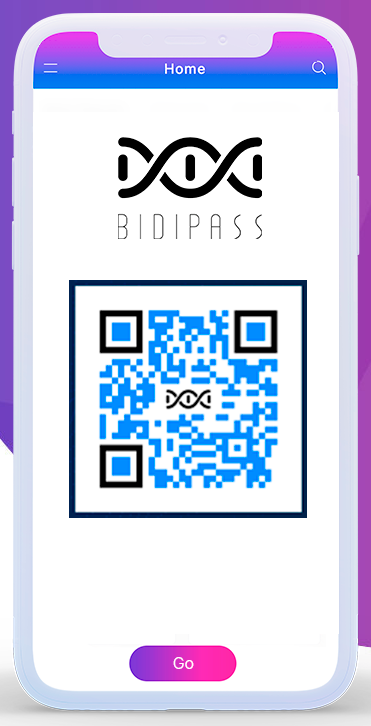Taken from bidipass.org
One of the greatest advantages of cryptocurrencies, and the internet in general, is their availability. Everyone can trade them, everywhere in the world, at any time, with incredible ease and speed. But, as with any internet-based environment, availability opens many ways for intrusion and security breaches: spyware, password forging, identity theft, etc.
Thus, it’s necessary that, as technologies improve and become more popular, different security options become widespread and maintain their internal integrity, and that’s where the team at BidiPass decided to step in.
Developing a safe network based on a hybrid of private and public blockchains, they offer a platform for service providers (i.e. exchanges) to ensure their users that their transactions and operations are well performed, always authorized by them and safe from threats like double counting.
Hybrid Blockchain Technology
Knowing how blockchain works (blocks of data linked together by encrypted hashes that contain information from the previous blocks), one can deduct how an identity encryption system can be constructed over this technology.
The problem that the BidiPass team identified is that using public blockchains like the Ethereum mainnet implies costs and fees per transaction (called ‘gas’). And considering that identity confirmation processes would take a minimum of three transactions, maintaining a platform on the Ethereum mainnet would be impossible.
Therefore, they developed their own private Ethereum setup, which they use to encrypt and validate all the identity-confirmation tasks, and only tap into the Ethereum mainnet for the management of their BDP Token and BDPp coins.
Separate Validation for Separate Blockchains
As with any operation performed within a blockchain, all the authorization requests performed within BidiPass’ hybrid blockchain system need validation in order to prevent counterfeiting.
The identity-related transactions are kept on track by miners, which also solve the proof-of-work problems to maintain the consistency of data. As a reward, the miners are granted amounts of BDPp coins, which they can exchange to BDP Tokens to trade within the Ethereum mainnet.
In a similar way, the transactions that involve BDPp coins and BDP Tokens are validated by who they call Decentralized Validators, who also receive BDPp coins as an incentive for their work.
This generates the necessary division of duties within the entire network to ensure that data does not “jump” from one blockchain to the other, keeping the users’ identities completely separated from the public, busier mainnet.
Taken from bidipass.org
FOUR-step verification
To ensure the correct use of the BidiPass platform, they developed an interactive verification between three parties: the provider, the user and the platform itself.
The provider first triggers an authorization request regarding a particular action or process. This request goes to the BidiPass platform, where it gains the Pending status and the user is then prompted to give an answer: Approved if the user is aware of this transaction or Rejected if they are not. This response is sent back to the provider for it to mark the transaction as Accepted or Declined, depending on the validation (e.g. a One-Time Password being correct or incorrect). The transaction can also be Cancelled in any situation.
Flowchart of the verification process. Taken from bidipass.org
This guarantees an active user involvement in the process, acknowledging the transaction before needing to engage again in the validation, while also granting BidiPass a way for miners to confirm the actions.
BDP Token and BDPp Coins
In order to keep miners and Decentralized Validators interested in their duty of keeping the transactions in order, BidiPass offers rewards in the form of BDPp Coins, which are basically an intermediate value holder for the owners to later exchange into BDP Tokens (an ERC20 Token), giving BidiPass the benefit of keeping private records of BDPp Coins given and exchanged. The BDP Token can be traded just like any other cryptocurrency, which in turn generates real value for the original BDPp Coin holders.
All this integration is possible by using the offered BidiPass SDK, which includes the necessary functionalities and resources to establish the safe identity-confirmation platform in different languages (Javascript, PHP, etc.).
You can find more information about how to secure your clients’ identity on bidipass.org




